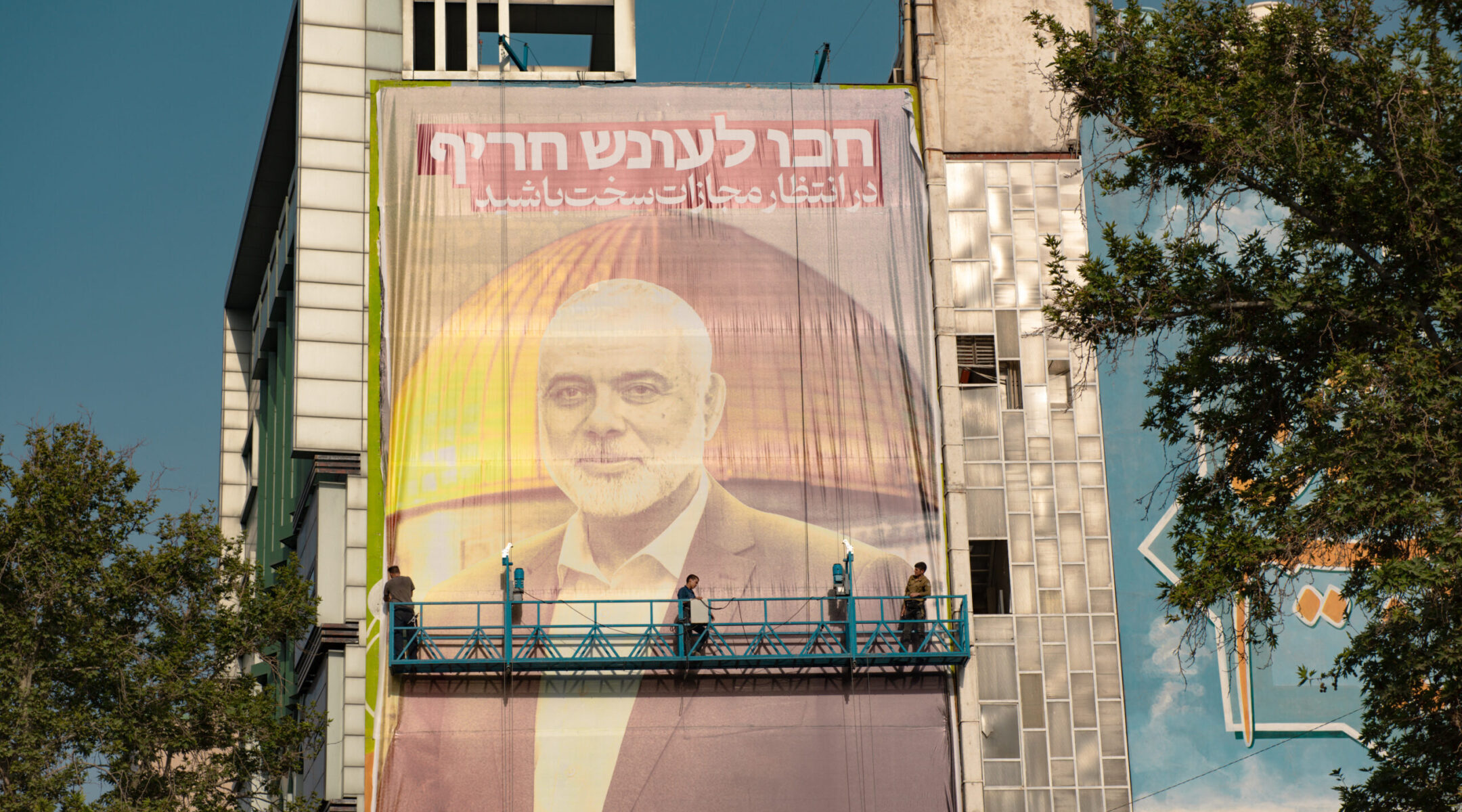Hours after the Hamas leader Ismail Haniyeh was assassinated in Tehran, a building-sized poster went up in the city’s Palestine Square that, unusually, featured the national language of Iran’s sworn enemy Israel.
“Wait for harsh punishment,” the billboard said in Hebrew, atop a massive portrait of Haniyeh, whose funeral took place Thursday. Haniyeh is shown in front of the Dome of the Rock, the Muslim holy place on Jerusalem’s Temple Mount, a site revered by Jews and Muslims.
The poster offered a powerful symbol of what unnamed Iranian officials told the New York Times late Wednesday: that Iran’s supreme leader, Ayatollah Ali Khameini, had authorized a direct attack on Israel in response to Haniyeh’s assassination.
“Following this bitter, tragic event which has taken place within the borders of the Islamic Republic, it is our duty to take revenge,” Khameini tweeted, without specifying any details.
Israel has not taken responsibility for Haniyeh’s death, but it is widely understood to have been behind the assassination, which took place hours after Haniyeh attended a ceremony honoring Iran’s new president in an operation that has humiliated Iran at a time when it is seeking to project strength. Israeli Prime Minister Benjamin Netanyahu warned Israelis late Wednesday that there could be “difficult days ahead” as Israel waits for Iran’s response.
In April, Iran fired missiles directly at Israel for the first time; almost all of the hundreds of missiles were deflected by Israel and its allies, including the United States. Israel struck near a military site in Iran in response.
The sources told the New York Times that the response to Haniyeh’s death, which might be coordinated with Iran’s allies in the region including Hezbollah in Lebanon and the Houthis in Yemen, would target military installations and seek to avoid harming civilians.
JTA has documented Jewish history in real-time for over a century. Keep our journalism strong by joining us in supporting independent, award-winning reporting.






